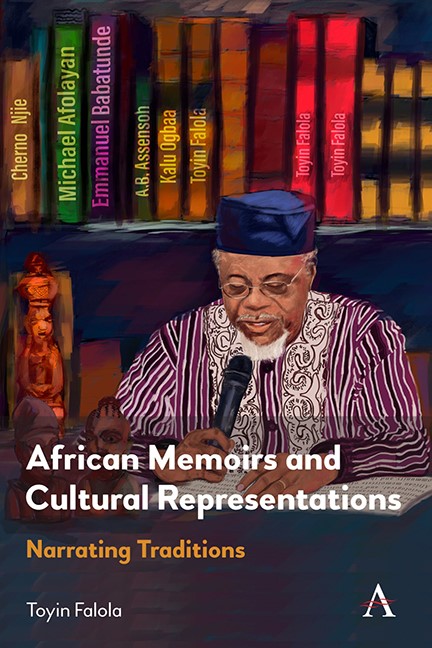Book contents
- Frontmatter
- Contents
- List of Figures
- Dedication
- Acknowledgments
- Preface
- Chapter One Mirror Effect: Narrating the Self through Traditions and Cultures
- Chapter Two The Universal and the Particular in African Memoirs
- Chapter Three The Portraiture of Womanhood in Emmanuel Babatunde’s An African Journey through Celibate Priesthood to Married Life
- Chapter Four Politics, Philosophical Representation, and Culture in Cherno Njie’s Sweat Is Invisible in the Rain
- Chapter Five The Yoruba Worldview, Meanings, and Ideals of Life in Michael Afolayan’s Fate of Our Mothers
- Chapter Six The Indelibility of Igbo Tradition (Home) in Kalu Ogbaa’s Carrying my Father’s Torch
- Chapter Seven Experiences, Reflections, and Refractions on the Cusp in A. B. Assensoh’s A Matter of Sharing
- Chapter Eight Toward a Spatial and Identity Synthesis: Regional Peculiarities in African Memoirs
- Bibliography
- Index
Chapter One - Mirror Effect: Narrating the Self through Traditions and Cultures
Published online by Cambridge University Press: 14 November 2023
- Frontmatter
- Contents
- List of Figures
- Dedication
- Acknowledgments
- Preface
- Chapter One Mirror Effect: Narrating the Self through Traditions and Cultures
- Chapter Two The Universal and the Particular in African Memoirs
- Chapter Three The Portraiture of Womanhood in Emmanuel Babatunde’s An African Journey through Celibate Priesthood to Married Life
- Chapter Four Politics, Philosophical Representation, and Culture in Cherno Njie’s Sweat Is Invisible in the Rain
- Chapter Five The Yoruba Worldview, Meanings, and Ideals of Life in Michael Afolayan’s Fate of Our Mothers
- Chapter Six The Indelibility of Igbo Tradition (Home) in Kalu Ogbaa’s Carrying my Father’s Torch
- Chapter Seven Experiences, Reflections, and Refractions on the Cusp in A. B. Assensoh’s A Matter of Sharing
- Chapter Eight Toward a Spatial and Identity Synthesis: Regional Peculiarities in African Memoirs
- Bibliography
- Index
Summary
Introduction
African memoirs are read not just as works of critical literary writing but also understood as writings that inspire achievements. African memoirists often use the concepts of the self, the other, and the community. These three are interwoven to the point that in telling the stories of the other and a specific community, the authors recount their own stories. Therefore, in reading an African memoir, one cannot grasp all the goals set by the author for the audience without examining the interrelation of the self and the other. African memoirs are sites to display the ontological, moral, and communal interrelations of the self and the other, which are central to this book. The narratives in the memoirs examined in this book highlight the essence of the relationship between the writers and their communities. These accounts share the experiences of the writers and those of others, as well as the influence of others on the writers. As explained in this work, each narration in an African memoir is told for different purposes, and at the center is the self (writer), who is greatly influenced by the other (community of others). Important to each memoir is the writer’s identity, as he/she is the focal point, the one who is reminiscing, recollecting the memories from the past, and reflecting on the general implications of lessons from the past. This work aims to thoroughly analyze the experiences shared in memoirs written by Africans, particularly the various psychological, sociological, and sociopolitical underpinnings of the writers’ narrations.
Therefore, it is important to lay the foundation of this work on theoretical frameworks, as one must conceptually analyze key concepts and theories such as the other, the self, personal identity, and social identity. By doing so, readers will understand the basis of many of the arguments, explications, and statements in this work. Issues about politics, activism, communitarianism, and so on should not be read in the seclusion of the self, the other, personal identity, and social identity. This is because the essence of this work can only be fully grasped through a critical understanding of how the writers are looking at societies to frame their experiences.
- Type
- Chapter
- Information
- African Memoirs and Cultural RepresentationsNarrating Traditions, pp. 1 - 24Publisher: Anthem PressPrint publication year: 2023

